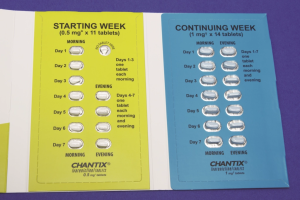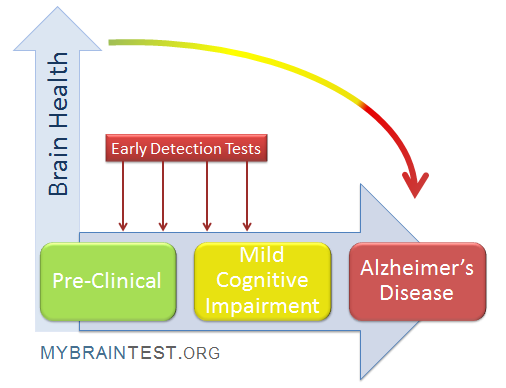Alzheimer’s early detection is crucial in the fight against this debilitating disease, allowing for timely intervention and management before symptoms such as memory loss arise. Recent studies suggest that olfactory testing—utilizing a simple at-home test—can identify individuals at risk of Alzheimer’s years ahead of clinical signs. By evaluating one’s ability to detect and remember various odors, researchers are uncovering vital links between cognitive impairment and neurodegenerative diseases like Alzheimer’s. This groundbreaking approach not only offers a cost-effective and non-invasive method for Alzheimer’s risk assessment but also empowers patients with the knowledge they need to seek further evaluation. With such advancements, the landscape of dementia care is evolving, presenting hope for early diagnosis and future treatment strategies.
Uncovering the early signs of neurodegenerative diseases is an emerging field, and understanding cognitive decline can significantly impact patient outcomes. The concept of detecting early cognitive impairment, particularly in relation to conditions like Alzheimer’s disease, has led to innovative strategies such as home-based assessment tools. These methods assess not only mental functions but also sensory abilities, like olfactory senses, to provide a comprehensive picture of brain health. As researchers explore alternative testing approaches, the significance of timely diagnosis becomes paramount, enabling individuals to engage in proactive health management. Overall, a focus on early identification and prevention paves the way for advancements in treatment and support for those affected.
Unlocking Early Detection of Alzheimer’s Disease
Early detection of cognitive impairment plays a crucial role in the management and treatment of Alzheimer’s disease. Researchers have made significant strides in identifying innovative ways to sniff out the earliest signs of this neurodegenerative condition. One such breakthrough involves olfactory testing, which measures a person’s ability to identify and remember various odors. This method has shown promise in differentiating between cognitively normal individuals and those with mild cognitive impairment, paving the way for timely interventions before more severe symptoms develop.
The development of at-home olfactory tests represents a revolutionary step in Alzheimer’s risk assessment. Not only are these tests user-friendly and noninvasive, but they also allow for extensive participation without the need for clinical visits. By empowering individuals to take action regarding their cognitive health, these home tests could drastically change the landscape of early Alzheimer’s detection and treatment.
Frequently Asked Questions
How can Alzheimer’s early detection be facilitated using at-home tests?
Alzheimer’s early detection can be facilitated by using at-home tests such as the olfactory test developed by researchers from Mass General Brigham. This test measures odor identification, discrimination, and memory, allowing individuals to assess their cognitive health in the comfort of their homes. By identifying olfactory dysfunction, which may indicate cognitive impairment, these tests can help in early risk assessment for Alzheimer’s disease.
What is the role of olfactory testing in assessing Alzheimer’s risk?
Olfactory testing serves as a valuable tool in assessing Alzheimer’s risk by evaluating an individual’s sense of smell. Research indicates that older adults with cognitive impairment often score lower on olfactory tests compared to those who are cognitively normal. This subtle loss of smell may be an early indicator of neurodegenerative diseases, including Alzheimer’s, making it a critical component of early detection strategies.
What are the key signs of cognitive impairment that can hint at Alzheimer’s?
Key signs of cognitive impairment that may suggest the risk of Alzheimer’s include difficulties in memory, trouble with problem-solving, and a decline in the ability to identify or discriminate scents in olfactory tests. These symptoms often manifest before more noticeable memory issues arise, highlighting the importance of early detection through assessments like home olfactory testing.
Can olfactory testing predict the progression of Alzheimer’s disease?
Yes, olfactory testing may help predict the progression of Alzheimer’s disease. Research has shown that individuals with mild cognitive impairment have reduced scores in olfactory assessment compared to cognitively healthy individuals. Future studies aim to validate olfactory testing as a predictive tool for cognitive decline, potentially allowing for earlier interventions in Alzheimer’s disease.
What is the significance of home tests for Alzheimer’s early detection?
Home tests for Alzheimer’s early detection are significant because they provide accessible and cost-effective methods for individuals to evaluate their cognitive health. For example, olfactory tests allow users to easily assess their ability to identify odors, which can indicate cognitive impairment. These tests empower individuals to monitor their health and seek medical advice before more severe symptoms develop.
Are olfactory tests effective for non-English speakers in assessing Alzheimer’s?
Yes, olfactory tests have proven to be effective for non-English speakers as demonstrated by the inclusion of Spanish-speaking participants in recent studies. The results indicate that olfactory testing can be reliably performed across different languages, enhancing its applicability in diverse populations for Alzheimer’s early detection and cognitive impairment assessments.
| Key Point | Details |
|---|---|
| At-home olfactory test | Developed by researchers at Mass General Brigham to assess smell discrimination, identification, and memory. |
| Significance of early detection | Identifies individuals at risk for Alzheimer’s years before symptoms appear, enabling interventions. |
| Research findings | Older adults with cognitive impairments scored lower in olfactory tests compared to cognitively normal adults. |
| Exploration of olfactory dysfunction | Investigates how loss of sense of smell may indicate risk for Alzheimer’s and other neurodegenerative diseases. |
| Study methodology | Included both English and Spanish speakers with cognitive complaints and mild cognitive impairment. |
| Future directions | More studies needed to explore neuropsychological testing and long-term predictive capabilities of this tool. |
Summary
Alzheimer’s early detection is crucial for identifying individuals at risk long before any memory-related symptoms manifest. This innovative at-home olfactory test not only provides a practical method for screening but also offers the potential for timely intervention. As researchers continue to explore the implications of olfactory dysfunction, the outlook for Alzheimer’s disease research and treatment looks promising. By adopting such noninvasive testing strategies, we can improve early identification efforts, thereby enhancing outcomes for those at risk of Alzheimer’s.









